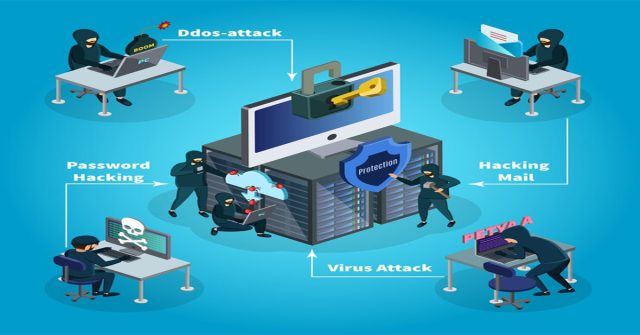The Growing Threat of Mobile and Data Center Hacking
Mobile and Data Center Hacking: An Increasing Threat
In today’s technology-driven world, the use of mobile devices and data centers has grown significantly, making them prime targets for hackers. As technology continues to advance, the threat of mobile and data center hacking is becoming increasingly significant, affecting individuals, businesses, and governments alike. we will take a closer look at the growing threat of mobile and data center hacking and what can be done to protect against it.
Mobile Hacking
Mobile devices, such as smartphones and tablets, have become an essential part of our daily lives. We use them for everything from communication and entertainment to banking and shopping. However, with the increasing use of mobile devices comes the growing threat of mobile hacking.
Mobile hacking involves the unauthorized access to and manipulation of sensitive information stored on mobile devices. This can occur through a variety of methods, including malware attacks, phishing scams, and social engineering.
Malware attacks involve the introduction of malicious software into a device, allowing hackers to take control of it and steal sensitive information. Phishing scams involve the use of emails or messages that appear to be from a trusted source, tricking individuals into giving up their personal information. Social engineering refers to the use of psychological tactics to trick individuals into revealing sensitive information.

The consequences of mobile hacking can be severe. For individuals, a cyber attack can result in identity theft, financial fraud, and other types of cybercrime. For businesses, cyber attacks can result in lost profits, reputational damage, and legal consequences. Governments can also suffer from cyber attacks, with sensitive information being leaked or used for political purposes.
Data Center Hacking
Data centers are an essential part of our technology infrastructure, storing large amounts of sensitive information on servers and databases. However, with the increasing use of data centers comes the growing threat of data center hacking.
Data center hacking involves the unauthorized access to and manipulation of sensitive information stored on servers and databases. This can occur through a variety of methods, including unauthorized access to servers and databases, malware attacks, and phishing scams.

In addition, data centers are a target for hackers because they often store large amounts of sensitive information, making them an attractive target. The consequences of data center hacking can be severe, with sensitive information being leaked or used for malicious purposes.
Protecting Against Mobile and Data Center Hacking
The increasing threat of mobile and data center hacking highlights the importance of taking steps to protect against cyber security threats. To protect against mobile and data center hacking, it is important to take steps to secure devices and online accounts.
This includes using strong and unique passwords, keeping software and anti-virus programs up-to-date, and being cautious of phishing scams. Additionally, businesses and governments should invest in robust security systems, including firewalls, intrusion detection systems, and encryption technologies, to protect against cyber attacks.
One of the most important steps individuals and businesses can take is to educate themselves about cyber security threats and how to protect against them. This includes understanding the methods used by hackers, such as malware attacks, phishing scams, and social engineering, and taking steps to protect against them.

Another important step is to keep software and anti-virus programs up-to-date. This helps to ensure that devices and systems are protected against the latest cyber security threats. Additionally, it is important to use strong and unique passwords, and to avoid using the same password for multiple accounts.
















